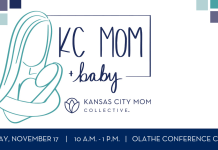 I was a mother for almost two years before I held my daughter. Though she was the first baby I held in my arms, she was not the one who made me a mother. The one who made me a mother lived only for seven weeks, though I didn’t find out I had lost him or her until 10 weeks when an ultrasound revealed that the heart had stopped beating. Despite suspecting that it might be the case, I was devastated and felt completely alone, as though I was the first and only person to have experienced this. Obviously, this is not the case. Miscarriage is SO common. We’ve all heard the stats: 1 in 4 pregnancies ends in miscarriage. But when it happens to you, it doesn’t feel common at all.
I was a mother for almost two years before I held my daughter. Though she was the first baby I held in my arms, she was not the one who made me a mother. The one who made me a mother lived only for seven weeks, though I didn’t find out I had lost him or her until 10 weeks when an ultrasound revealed that the heart had stopped beating. Despite suspecting that it might be the case, I was devastated and felt completely alone, as though I was the first and only person to have experienced this. Obviously, this is not the case. Miscarriage is SO common. We’ve all heard the stats: 1 in 4 pregnancies ends in miscarriage. But when it happens to you, it doesn’t feel common at all.
From the start, I’ve been open about the fact that I miscarried. I was profoundly lucky to have a wonderful support system during my miscarriage. At the time, I worked in an incredibly family-friendly environment. When my boss learned that I had miscarried, he insisted that I take the remainder of the week to heal from my D&C and to take as much time beyond that as I needed to recover emotionally. Upon returning to work, he checked in with me personally over the following weeks to let me know he was thinking of me and to see how I was doing. But the real heroes were my friends. They were my lifeline.
The day I learned I was experiencing a missed miscarriage, they threw together a last-minute cookout for that evening to offer support and distraction. We had dinner outdoors, plenty of wine, and laughed and talked and cried. People showed up for me in a variety of ways. There were coffee mugs and sympathy cards and bottles of wine. There were long talks and phone calls and so many text messages. Several friends combined efforts and gave me a massage gift certificate. Another friend—who, truthfully, was more of an acquaintance—happened to find out about my miscarriage and within two hours, she had dropped of an incredible care package consisting of homemade cookies (with leftover dough to freeze), a Starbucks gift card, packets of tea, and a loaned collection of her favorite funny movies to make me laugh. She explained that she, too, had experienced miscarriage and wanted to pass on her love.
I’ll never forget these gestures. But as much as I appreciated them, what was most meaningful to me was the fact that people were acknowledging my experience, making me feel seen and loved. Remembering and celebrating my baby. The baby I never got to hold but loved fiercely for the entire 49 days that its heart was beating. The gifts were so thoughtful, and I loved them. Those initiated my healing. But what sustained me was knowing that others saw my suffering and sat with me through it.
As lucky as I was to be so well supported, there were a handful of others who (I’m certain unintentionally) made me feel more sad and isolated. Some offered empty platitudes such as “God only gives you as much as you can handle” or “You’ll have another baby soon,” or my least favorite, “Everything happens for a reason.”
But worse still were those who simply did not acknowledge my experience despite knowing exactly what occurred. I do not believe these people were hurtful intentionally. I suspect that it was a combination of discomfort and uncertainty of what to say. I believe this to be a direct result of the pregnancy culture our society has created. Women are made to believe that we shouldn’t announce our pregnancies until after the first trimester at the earliest (ridiculous). And if we are so unfortunate to experience a loss of pregnancy (particularly an early loss), we are expected to quietly carry that pain alone. There is, of course, nothing wrong with grieving privately or waiting to announce a pregnancy until one feels ready. But the current accepted norm stifles all women into one way of navigating their pregnancy or loss. This sentiment also holds true for women walking through infertility, but that is a different topic for a different day.
Through my own miscarriage and in speaking with others who have experienced this and/or infant loss, I have compiled a list of gentle suggestions on how to love your friend or family member through this time of suffering. If you know someone who is going through the loss of a pregnancy or infant, consider offering support in one or more of the following ways:
Push through your own discomfort to offer sympathy. Ask the mother how she is feeling. Give her the opportunity to discuss her feelings openly or to say she doesn’t want to talk. But don’t just assume that she doesn’t want to talk.
Consider dropping off a meal. I will often say “I’d love to bring you a meal. I’m happy to just drop it off in a cooler on your front porch if you aren’t feeling up to visitors.”
Give a small token to let her know you are thinking about her. This very post is chock-full of ideas.
Send a quick text. This lets her know she is on your mind. Consider asking her how she would best feel supported and loved.
Babysit her other children. If she has other kids, consider offering to take them off her hands for a few hours so that she might have some time to herself.
Talk about her baby. Ask her if she named him/her. If she did, call the baby by name. If not, just remind her that you haven’t forgotten about the child that she loved and lost.
Don’t forget Mother’s Day. While I was waiting to hold a baby in my arms, I had several friends reach out to me on Mother’s Day and send their love and thoughts and tell me they knew I was already a mother in spirit.
Don’t forget the dads. Often the condolences are directed to the mother alone, but the fathers are also experiencing this loss and shouldn’t be neglected.
And for those experiencing loss, remember, a baby isn’t what makes you a mother. Neither is a pregnancy. There are so many ways of being a mother and none of those ways require a baby in your belly or your arms. It requires a spirit.
[hr]
We invite you to add your baby’s name to our “Forever Loved” remembrance wall as a reminder that his or her life mattered and that you are supported in your grief by a community of moms who understand.
















